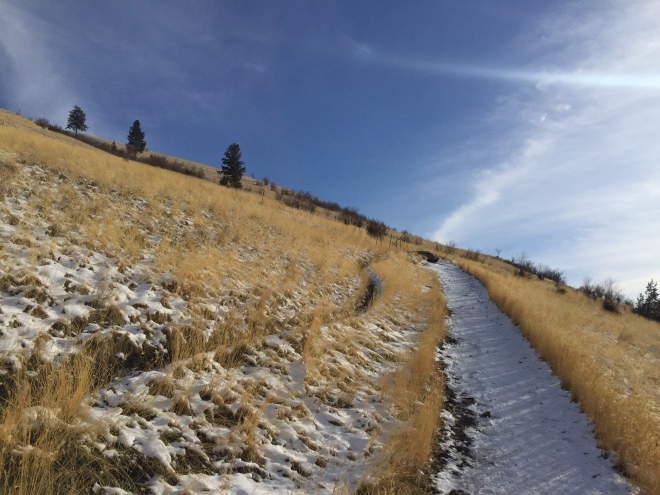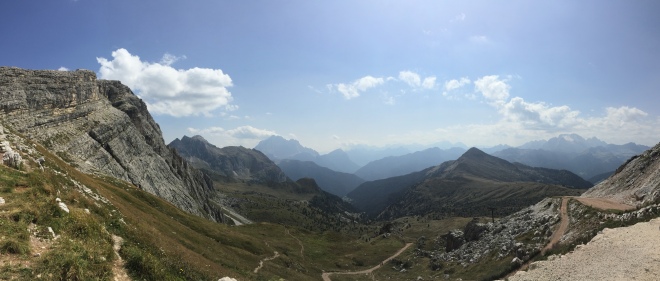In July, I participated in an inspiring 4-day retreat led by Bev Trayner and Etienne Wenger – social learning theorists and consultants who have written extensively about communities of practice and how cultivation of knowledge is a group-mediated activity. Each morning at the retreat we explored their current thinking about social learning, enjoying much time for discussion of the ideas as a group. One model that particularly resonated with me was that of the knowledge landscape.
In this metaphor, communities of practice can be imagined as hills or mountains of expertise within a landscape. The mountains can vary in height, depending on the amount of knowledge contained, and the slope of the mountain indicates the gradient of learning or the curriculum that a new member of the community would need to follow in order to progress up the mountain to expert level. A steep slope indicates that it’s harder to master the knowledge in that community, whereas a more gentle gradient allows for working more leisurely within the learner’s comfort zone.

How steep is the learning curve in your community of practice?
Image credit: author’s own
Two types of community managers within the landscape?
These discussions prompted me to reflect on the role of the community manager in a knowledge landscape of this type and whether we might envisage two broad kinds of community managers that help us to navigate knowledge – those that operate locally on a given hill and those that operate with a more global focus. On a local level, a community manager could assist the mountaineers on a particular hill of expertise – helping new climbers to find a seasoned sherpa or volunteer guide from within the community to get them started. One could extend the metaphor such that the onboarding of new members at the base of the hill might include equipping them with key tools for the climb – a map, a headtorch, and even wet weather gear – which might equate to welcome documentation, search tools in an online forum, and a set of guidelines and content reporting tools for use if things get rough.
On a global level, a community manager in the broader landscape could alert others to the existence of different mountains – essentially brokering between disciplines or groups of experts. She might engineer less formal learning opportunities than full participation in a community of practice – what Trayner and Wenger call social learning spaces. These might take place on the valley floor, where experts “come down from their mountains” to share with one another in exchanges that require them each to step out of their own community’s terminology and broker a new space and shared language. For the community manager, this requires a different set of expertise – including learning how to assess knowledge and “read the landscape” accurately, as well as how to persuade experts to step into new, shared terrain themselves. It’s a fun metaphor to work with!

Which mountains to climb today? Or steer a path between them?
Image credit: author’s own
Different identities within a knowledge landscape
A recurring theme throughout our retreat, which was also surfaced through the knowledge landscape metaphor, was that of identity. Belonging to a community of practice confers an identity to participants – they are part of a particular group – in this case, climbers or inhabitants of a specific hill or mountain. And that can define their level of expertise in that particular domain both by their location in the terrain (how much they know) and their relationship to others in the same location who can endorse their contributions (how much they are part of the community).
Compare that to someone who doesn’t scale a specific hill, but maybe seeks to navigate between them. Their identity is much more in flux, and negotiated afresh each time they encounter someone new on the path. Essentially, “knowledge nomads” probably don’t take their credentials with them, which raises interesting challenges in terms of whom and what to trust on their knowledge journey.
Do community managers have our own personal preferences for the local mountain versus global landscape perspective? Do you see yourself as part of a focused domain where your role includes constantly optimising the learning curve of your community – or do you prefer to be slightly more “nomadic”, thinking through complex challenges such as how to navigate across boundaries of expertise and the related trust issues?